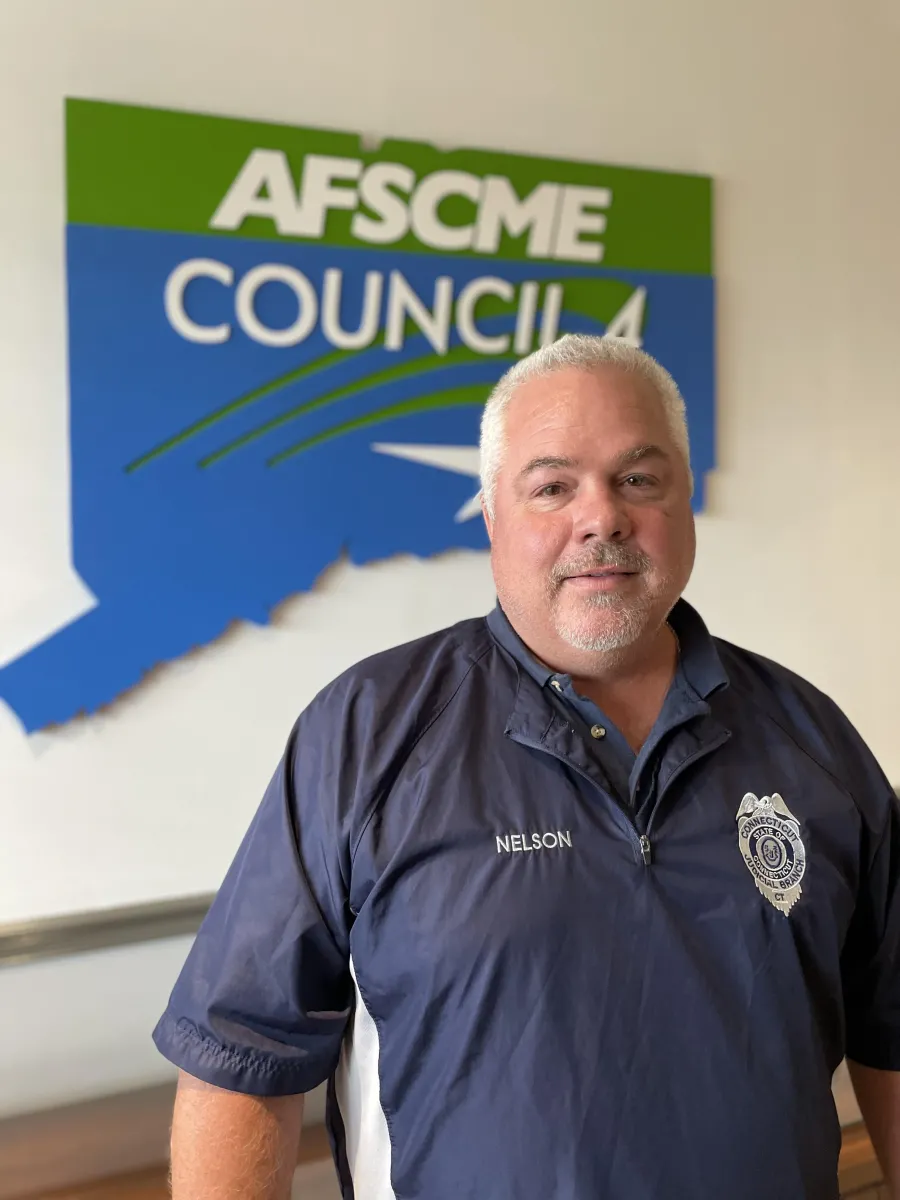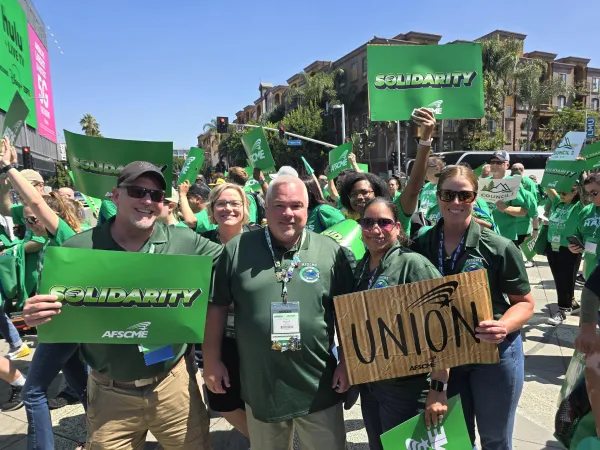Meet Council 4 President Ron Nelson

Ron Nelson, President of AFSCME Local 749 (State Judicial), was elected as President of Council 4 in April 2024, and was recently reelected as Local 749 President. Nelson has served as a Juvenile Detention Officer with the State of Connecticut’s Division of Criminal Justice since 2007 – but he had been a union member long before his career in public service, as a carpenter for 12 years in Local 210 of the United Brotherhood of Carpenters. Council 4 Communications sat down with President Nelson to learn more about his journey in the labor movement and his experiences in fighting for his co-workers.

Q: When was the first time you got involved with your union?
President Nelson: In 2009, I encountered an issue with seniority and felt that the contract was inappropriate in this regard. I worked one year as part-time before being hired full time in 2008, but only full-time employment counted towards seniority, so I wasn’t credited for my previous service – even though I had enough experience to train everyone else on my shift.
In addition, management divided us between shift and building seniority, which contradicts the contract. As I saw how this issue affected everyone, and not just me, I filed grievances to get this issue corrected – then I became a union steward. Eight years later, we finally got part-time credit added to the contract.
Q: What was your journey stepping up to become a union leader?
President Nelson: As I got more involved in our union, I saw how our Executive Board was somewhat overwhelmed with the tasks of organizing our local, so my first instinct was just try to assist them with certain things. I took trainings with Council 4’s Organizing department, which empowered me to take on more responsibilities. Every time there was an extra task, I took the corresponding training so I could assist the Executive Board. From there, I became Regional Vice President in 2016, Vice President and Chief Steward in 2018, and finally President in 2019 (and I was reelected in 2021).
And the relationships I developed with management – even as they wanted to steamroll us, and disapproved of my union involvement – allowed me to work with them. Over the last five to six years, we have cleaned up the workplace a lot.
Q: Can you tell us about a challenge you successfully took on in your local?
President Nelson: We had a group of employees who have been working out of their job class for two years – they were effectively shift supervisors, which is a difference of four salary grades. I investigated and showed that the State Judicial Branch had been making this mistake for two years, which resulted in a settlement of over $30,000 that was split between the roughly one dozen workers who were impacted.
From 2019 to 2021, we were negotiating the collective bargaining agreement for 200 court monitors, which was a huge undertaking, as initially we had little knowledge of what the monitors do and how they were positioned within the broader judicial system. We consulted the court monitors to learn about their job classification and issues they faced on the job. We successfully got higher pay for veteran employees, as well as a training and standards system for new employees.
Q: What is one thing the public should know about the State Judicial Branch?
President Nelson: We are a diverse workforce with many job classes that service many different sectors of the public. Our members are undervalued and not as respected as they should be, which is unfortunate because they provide critical services and they do a great job to get the pay they deserve. I am proud to be their president and to represent them within Council 4.
Q: What are you looking forward to in your term as Council 4 President?
President Nelson: My goal is always to “leave it better than I found it.” I want to make the Council a place where we have transparency, active communication, and member involvement. We need to get local leaders involved, and get Council 4 Executive Board members motivated to take on the next challenge – especially through our Council 4 Committees. We’re in a bit of a lull as we are transitioning through many folks retiring, but we have new folks on with fresh ideas, and a good mix of new and veteran leaders. We need to keep pushing for quality servicing and organizing of union members, and build on Council 4’s strength in numbers, as a union representing over 30,000 workers in Connecticut – whether in state and municipal public service, or nonprofits and private sector, our members Make Connecticut Happen!
